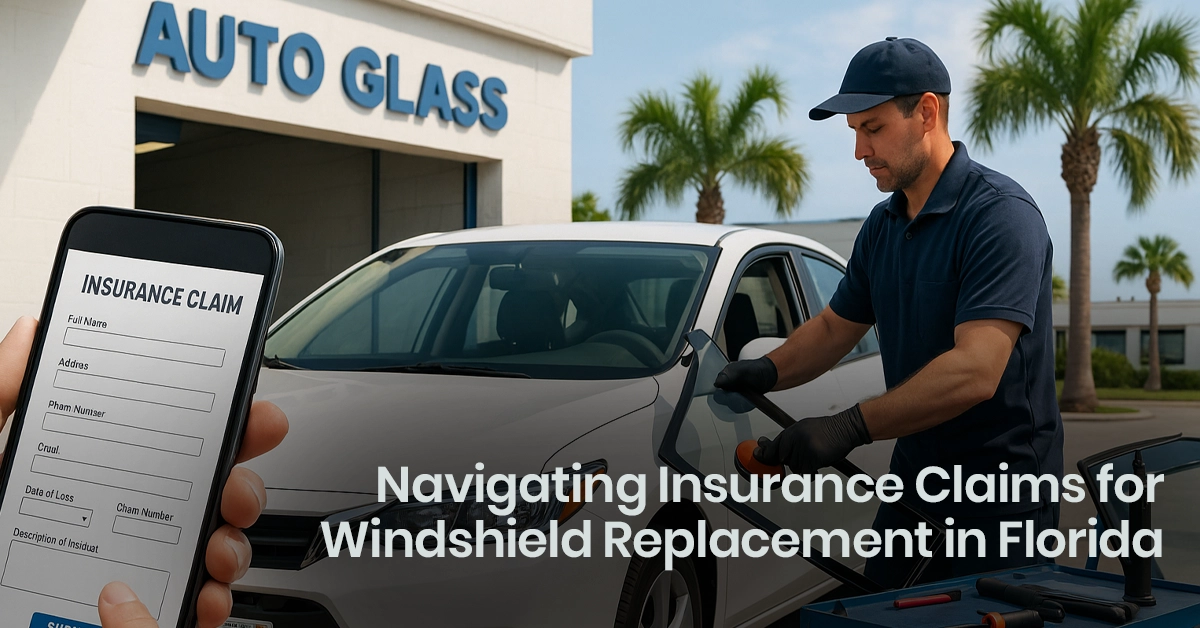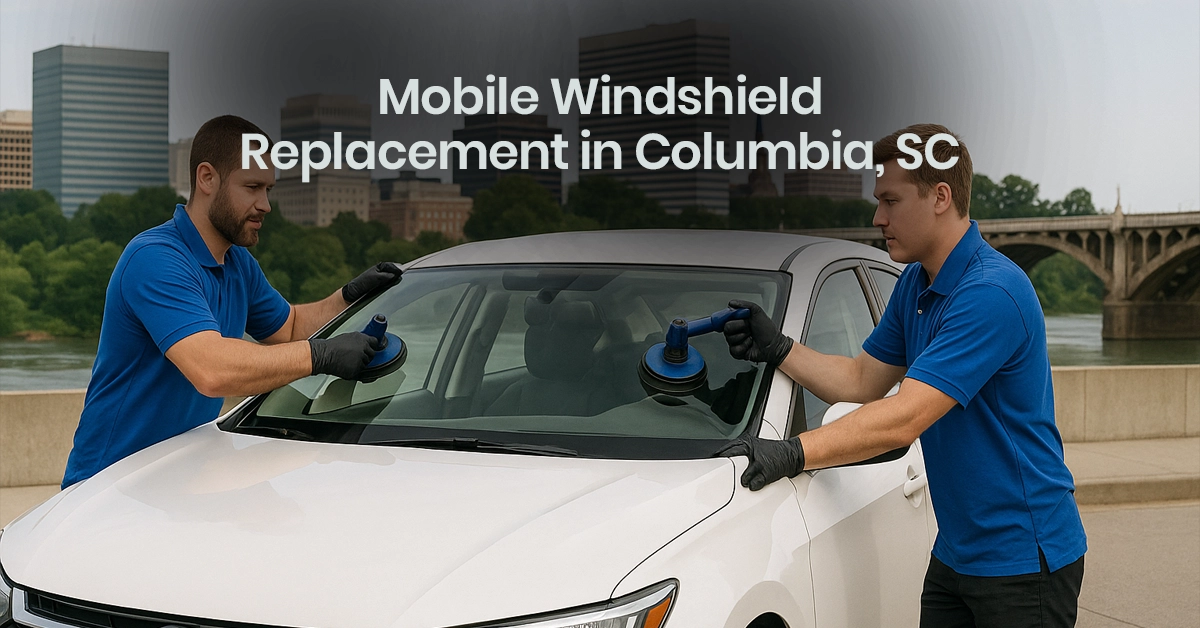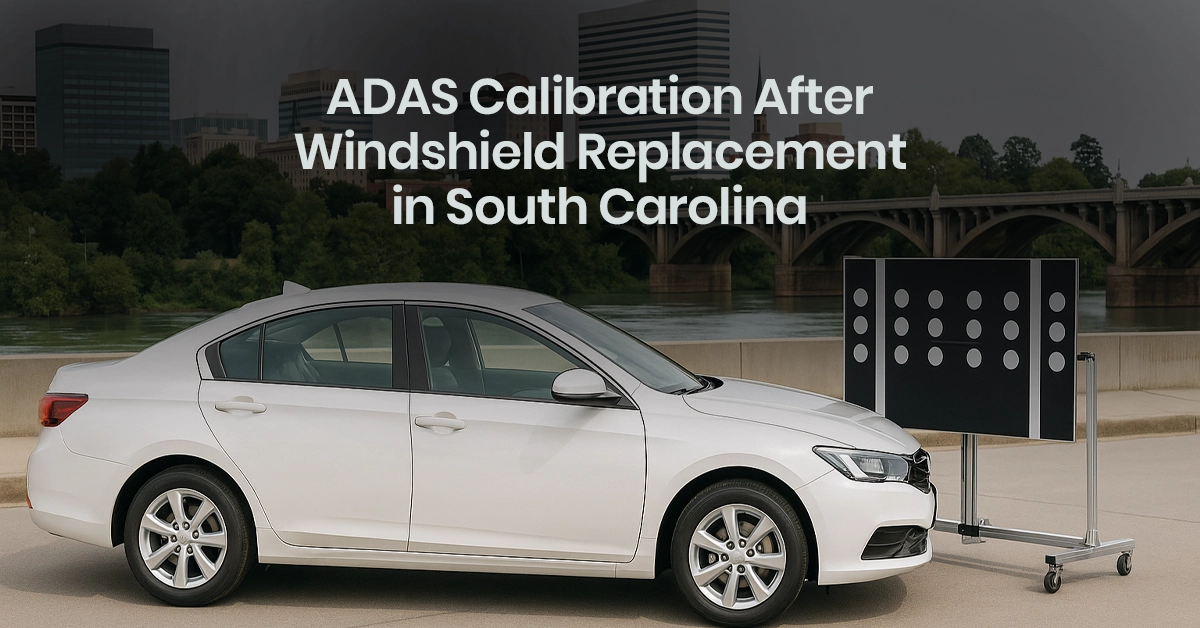Florida’s Car Accident Laws: What You Need to Know
February 12, 2025
If you reside in or visit Florida, you need to be familiar with the state’s vehicle accident laws to defend your rights following a crash.
Florida uses a no-fault insurance system, which means that drivers must initially submit claims with their Personal Injury Protection (PIP) insurance, regardless of culpability. However, serious injuries may entitle victims to sue the at-fault driver.
Florida also has strong accident reporting requirements, and failure to report accidents involving property damage or injuries can result in fines or issues with insurance claims.
Accidents frequently cause windshield damage, necessitating immediate auto glass repair or replacement. If the Advanced Driver Assistance Systems (ADAS) are compromised, calibration may be required to restore full operation and assure vehicle safety.
Florida’s No-Fault Insurance Law
Florida operates under a no-fault system, so drivers are required to seek compensation from their Personal Injury Protection (PIP) insurance first, regardless of who was at fault. PIP covers 80% of required medical fees and 60% of lost wages, up to $10,000, ensuring accident victims get immediate financial support.
However, PIP doesn’t pay for damages outside of policy limits. If injuries are more severe, the no-fault system can be bypassed, in which case victims can sue the at-fault driver. Additionally, car accidents often cause windshield or sensor damage, requiring auto glass repair and replacement in Florida.
Advanced Driver Assistance Systems (ADAS) for lane departure warnings and collision avoidance are present in numerous modern vehicles. ADAS calibration is required if these systems are involved in a collision and no longer perform as intended. With an understanding of these limitations, drivers will take the correct legal and safety steps following a car accident in Florida.
When Can You File a Lawsuit for an Accident in Florida?
Florida’s no-fault insurance law limits the ability to sue after a car accident in Florida, but exceptions exist for serious injuries. A victim can file a lawsuit against an at-fault driver if their injuries meet the serious injury threshold, which includes:
- Permanent injury affecting mobility or functionality.
- Significant disfigurement or scarring.
- Loss of a vital body function that is permanent.
When injuries meet the above criteria, victims can get full compensation for medical bills, lost wages, pain, and suffering. Separate claims for property damage, including car glass replacement and repair claims, can still be made and are not impacted by no-fault laws.
Severe accidents may also damage Advanced Driver Assistance Systems (ADAS) in modern vehicles, requiring ADAS calibration after auto glass repair & replacement in Florida. Understanding these legal options helps victims secure proper compensation beyond PIP coverage.
Reporting an Accident in Florida: Legal Requirements
Florida law requires drivers to report a car accident immediately if it involves:
- Injuries or fatalities.
- Property damage exceeding $500.
- A hit-and-run or DUI-related incident.
Drivers must call local police, the county sheriff, or the Florida Highway Patrol as soon as feasible. Failure to report an accident could result in fines and issues with insurance claims.
Drivers in small accidents without injuries must file a self-report form to the FLHSMV within 10 days. Insurance companies may refuse to pay claims if accidents are not properly documented.
Many times, accidents break windshields, requiring auto glass replacement and repair. If ADAS systems are affected, ADAS calibration is required to restore functionality after the replacement and repair.
Florida’s Laws on Uninsured and Underinsured Motorists
Florida does not require drivers to carry Uninsured/Underinsured Motorist (UM/UIM) coverage, but it is highly recommended. Since Florida has a high percentage of uninsured drivers, UM/UIM coverage protects you if the at-fault driver lacks adequate insurance.
Without UM/UIM, accident victims may struggle to recover compensation for medical expenses and vehicle damage. If an uninsured driver causes an accident, your PIP coverage will only pay a portion of medical costs, and property damage claims must be filed separately.
Uninsured drivers may also leave victims with car glass damage, requiring auto glass repair & replacement. The law allows drivers to use comprehensive coverage for car windshield replacement & repair in Florida. If your vehicle’s ADAS system is affected, ADAS calibration will be necessary to restore safety features.
What to Do After a Car Accident in Florida?
After a car accident in Florida, taking the right steps ensures safety and protects your legal rights.
Ensure Safety: Move to a safe location and check for injuries. Call 911 if medical assistance is needed.
Document the Scene: Take photos of the vehicles, road conditions, and any visible injuries.
Exchange Information: Collect details from all involved drivers, including license numbers, insurance information, and contact details.
Report the Accident: If injuries or damages exceed $500, report it to the police and Florida Highway Patrol.
Seek Medical Attention: According to Florida law, accident victims must seek medical attention within 14 days to be eligible for PIP benefits.
Inspect for Windshield Damage: If your windshield is cracked in an accident, immediately seek car windshield replacement and repair in Florida.
Conclusion
Understanding Florida car accident law is essential for navigating insurance claims, legal responsibilities, and compensation eligibility. Florida’s no-fault system limits lawsuits, but severe injuries allow victims to seek additional damages. Prompt accident reporting ensures compliance and prevents claim denials.
Accidents often cause windshield damage, requiring car glass replacement & repair in Florida. If ADAS sensors are affected, ADAS calibration is necessary to restore vehicle safety features.
Don’t compromise on safety. If your windshield is damaged, trust NuVision Glass America for fast, professional auto glass repair & replacement in Florida. We repair windshields and provide expert ADAS calibration to ensure your vehicle’s safety features are fully functional.
Schedule your service today and drive with confidence!
FAQs
1. What is the 14-day accident law in Florida?
Under Florida vehicle accident law, drivers must receive medical attention within 14 days of an accident to qualify for PIP claims. If this is not the case, claims could be dismissed, and sufferers would have to pay their own medical bills.
2. What is the new law in Florida for car accidents?
Florida recently modified its insurance and liability laws, including changes to comparative fault rules and statutes of limitations. The modified comparative negligence rule bars compensation if a driver is more than 50% at fault. The statute of limitations for filing a lawsuit has also been reduced from four years to two years.
3. What is Florida’s law regarding auto accidents?
Florida’s no-fault insurance law requires drivers to carry Personal Injury Protection (PIP) insurance, which covers medical expenses regardless of who caused the accident.
Law enforcement must be notified of any accident involving injuries, fatalities, or property damage exceeding $500. Victims with severe injuries may have the legal right to sue the at-fault driver for additional compensation.







